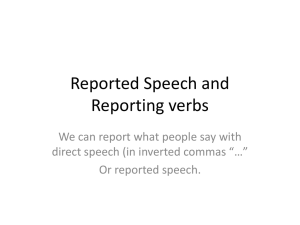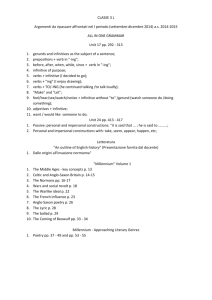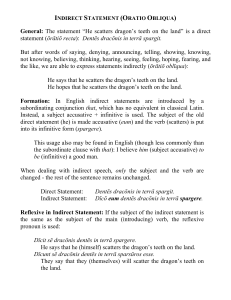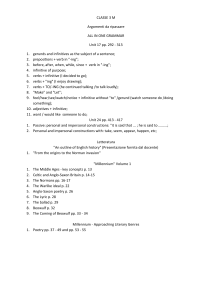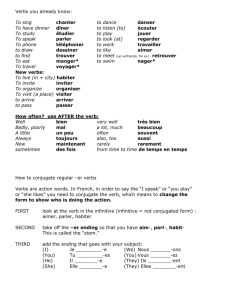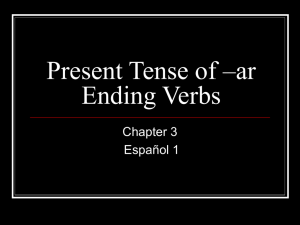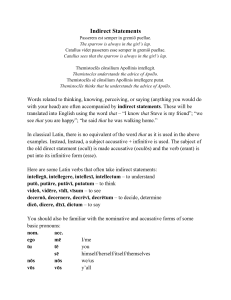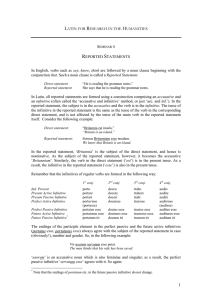Indirect Statement
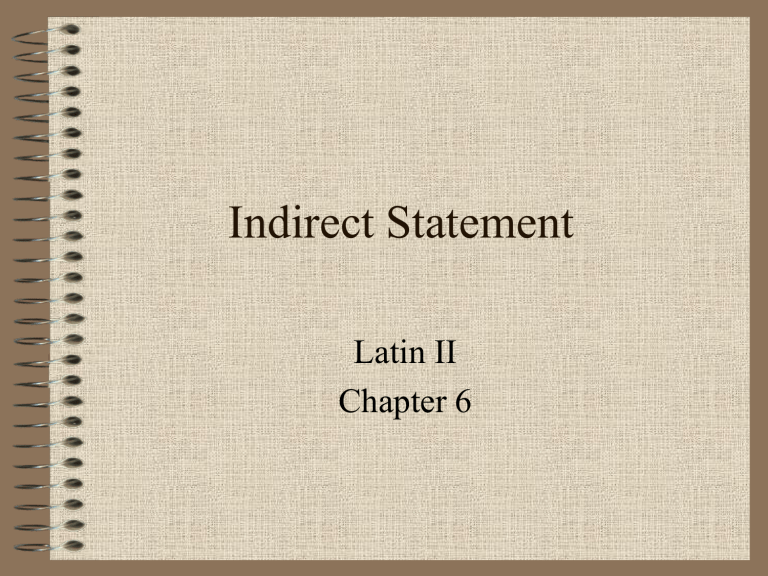
Indirect Statement
Latin II
Chapter 6
Indirect Statement
• An indirect statement is a clause that is found after verbs that mean to say, think, believe, etc.
• In English, we use a noun clause
• In Latin, we use an infinitive for the verb, and a subject in the accusative. There is no separate clause in Latin.
Verbs that are followed by an indirect statement construction
• Verbs of Saying
• dico
• nego
• ait
• nuntio
• narro
• scribo
• doceo
• ostendo
• Verbs of Knowing
• scio
• nescio
• intellego
• memoria teneo
• respondeo
• demonstro
• cognosco
Verbs that are followed by an indirect statement construction
• Verbs of Thinking
• credo
• puto
• spero
• arbitror
• Verbs of Perceiving
• audio
• video
• sentio
So what exactly is an indirect statement?
When you report what someone has done , said , thought , etc.
Veniam .
I will come.
What would the indirect statement equivalent of that look like?
Dixi me venturum esse.
I said that I would come.
How do you translate the infinitives in indirect statement?
Present Infinitive Takes place at the same time as the main verb
Perfect Infinitive Takes place before the action of the main verb
Future Infinitive Takes place after the action of the main verb
How do you translate the infinitives in indirect statement?
Present Infinitive is, was, were
Perfect Infinitive have, has, had
Future Infinitive will, would
for example……..
venire.
Putamus puellam venisse .
venturam esse.
is coming .
We think (that) the girl has come .
will come .
for example……..
venire.
Putabamus puellam venisse .
venturam esse.
was coming .
We thought (that) the girl had come .
would come .
Use sē…...
• If the subject of the infinitive is the same as that of the main verb and is third person
• If the object of the infinitive is the same as the subject of the main verb and is third person
Dixit se venturum esse.
He said he would come.
( He is the subject of both sentences.)
Dixit nos sibi persuasisse.
He said we had persuaded him.
( He is the subject of the first sentence and the object of the second.)
Use eum or eam
…….
….. when the subject or object is different.
Diximus eam interfectam esse.
eam eos interfecturam esse.
We said that she had been killed.
she would kill them.
Some verbs are followed by an accusative and future infinitive…...
• spero = I hope
• promitto = I promise
• iuro = I swear
• minor = I threaten
Sperabant se venturos esse.
They hoped to come.
finally
…..
NEVER use dico….non
; use instead nego
(I deny, I say ….not)
Negavit se venturum esse.
He said (that) he would not come.
